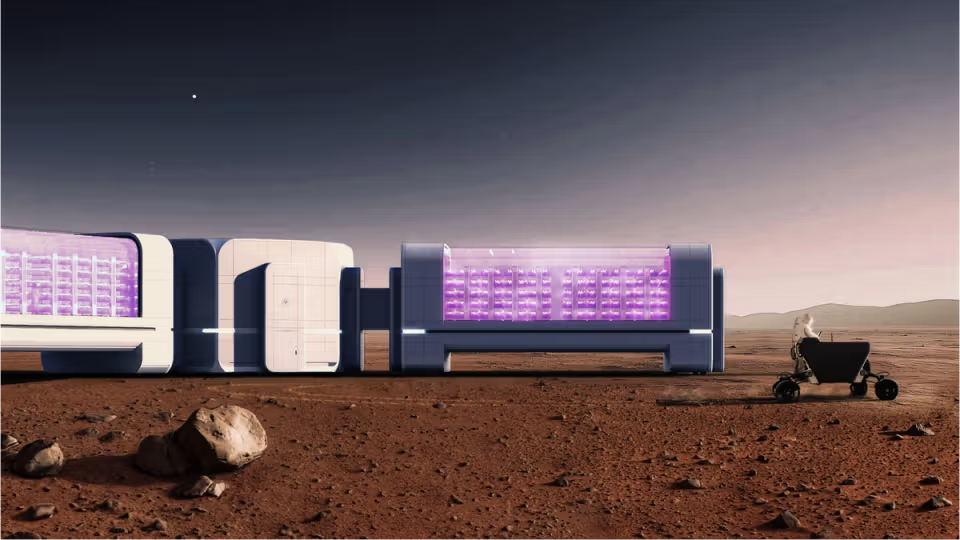Key Takeaways
- Interstellar Lab's Eden 1.0 will launch aboard Vast’s Haven-1 commercial space station, scheduled no earlier than May 2026.
- The plant growth capsule is designed for autonomous research in microgravity environments. Interstellar Lab aims to advance agricultural research.
- Interstellar Lab’s platform will support experiments in plant biology for food, cosmetics, and pharmaceutical applications.
- Eden 1.0 features AI-driven environmental control and remote system monitoring.
- Research access will be open to commercial, academic, and government partners.
Interstellar Lab to Deploy Eden 1.0 on Haven-1 for Space-Based Plant Research
Interstellar Lab has announced a new collaboration with Vast to integrate its Eden 1.0 plant research capsule aboard the Haven-1 commercial space station. Scheduled to launch no earlier than May 2026, Eden 1.0 is designed to conduct plant growth experiments in a microgravity environment, furthering Interstellar Lab's mission.
“With Eden 1.0 in Haven-1 Lab, we can provide new plant growth capabilities in space to conduct research and measure how biological life responds to low gravity environments,” said Barbara Belvisi, Founder and CEO of Interstellar Lab.
Eden 1.0: A Fully Autonomous BioCapsule for Controlled Environment Agriculture
Eden 1.0 is a self-contained, automated plant growth system purpose-built for space-based research. Interstellar Lab's NuCLEUS spin-off, Eden 1.0, is designed for compatibility with orbital station rack systems and offers a plug-and-grow solution for microgravity conditions.
Key technical features include:
- AI-based control system (Gaia) for light, climate, and fertigation.
- Custom LED lighting and modular components for long-term usability.
- Real-time monitoring and scheduling via the BioApp interface.
- Closed-loop nutrient and water delivery for consistent plant care.
Eden 1.0 supports studies on plant growth behavior, nutrient dynamics, and genetic adaptation under space conditions, aligning with Interstellar Lab's research goals.
Haven-1 Lab to Host Microgravity Experiments Across Multiple Industries
Haven-1, developed by Vast, will be the first commercial space station dedicated to research, development, and manufacturing in microgravity. The platform will feature 10 payload slots and serve as a hub for commercial and institutional partners seeking to conduct scientific experiments beyond Earth.
“Haven-1 is a collaborative hub for extending the vital work begun on the ISS, open to commercial, government, and research partners,” said Max Haot, CEO of Vast. “We’re excited to see how Eden 1.0 will inform the future of growing plants in space.”
Platform-as-a-Service Model Opens Access to Research Partners
Eden 1.0 will be offered as a platform-as-a-service, allowing external organizations to conduct plant biology experiments without developing custom hardware. Interstellar Lab will make the BioCapsule available for academic, governmental, and commercial research missions, supporting studies in molecular expression, stress response, and potential biomaterial applications.
This approach aims to lower the barrier to entry for space-based research and enable comparative experiments between orbital and terrestrial conditions.
Outlook For Interstellar Lab: Supporting Long-Term Space Habitats and Life Support Systems
Interstellar Lab views Eden 1.0 as a foundational step toward scalable life support in space. Future systems, including the Lunar BioCapsule Bloom 1.0 and Mars BioPod, are in development to support food production, air purification, and water recycling in closed-loop habitats.
“We want to enable long-term human presence in space and help life to expand,” said Belvisi. “For this, we need to create a bioregenerative life support system with growing food, purifying air, and recycling water.”
With this partnership, Interstellar Lab and Vast aim to contribute to the future of sustainable space exploration through scalable agricultural technologies and modular biological infrastructure, spearheaded by Interstellar Lab.


